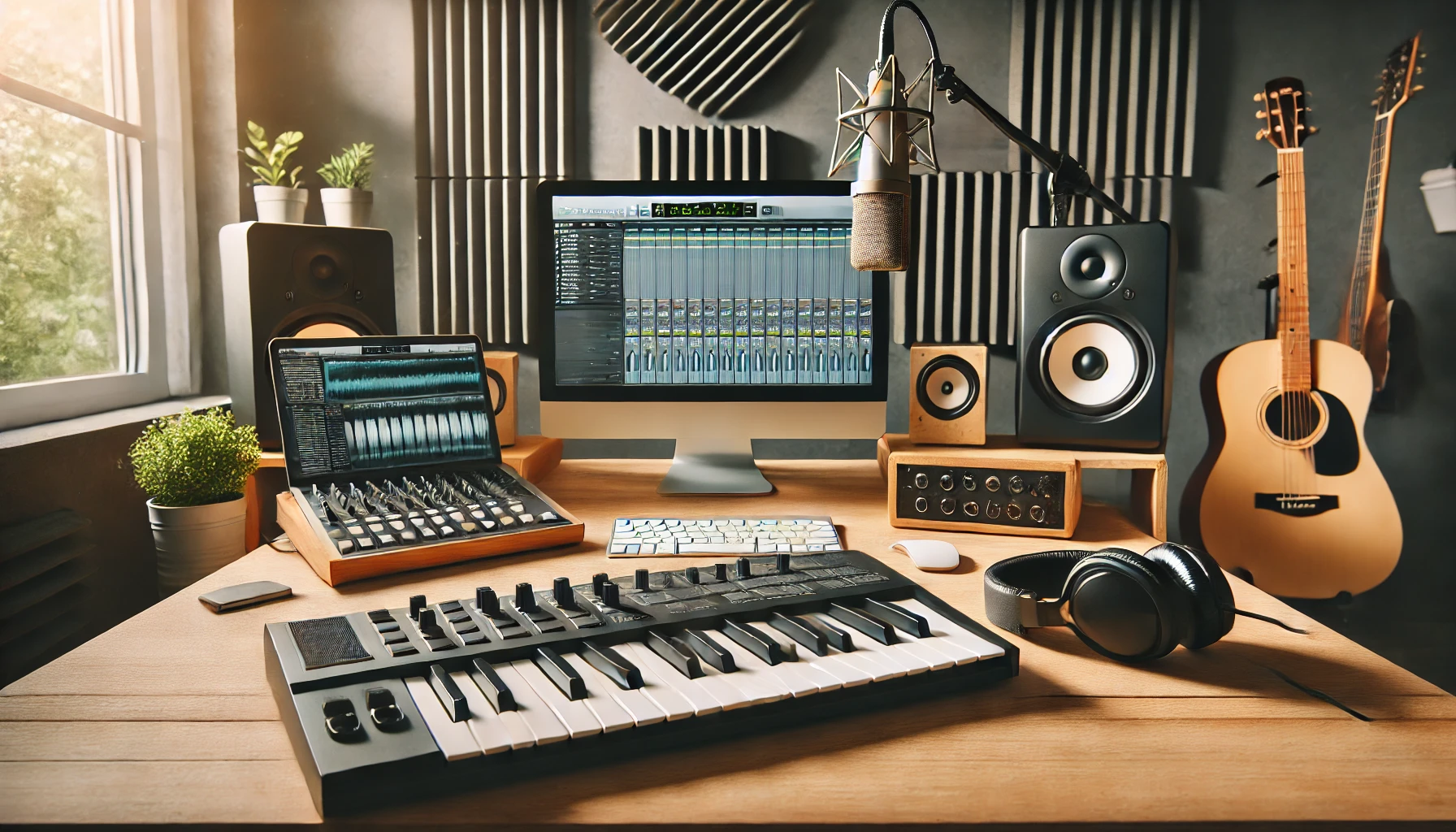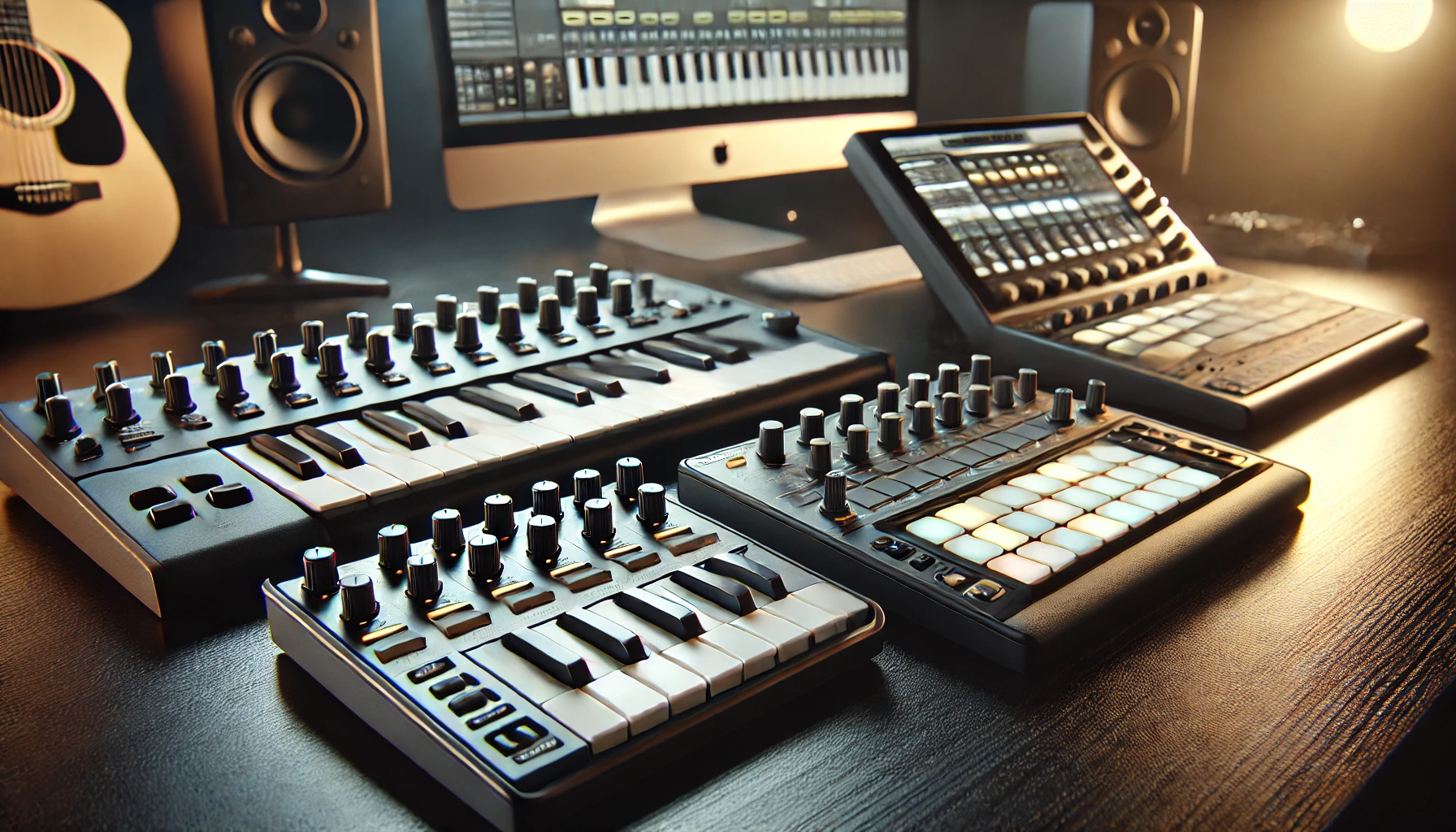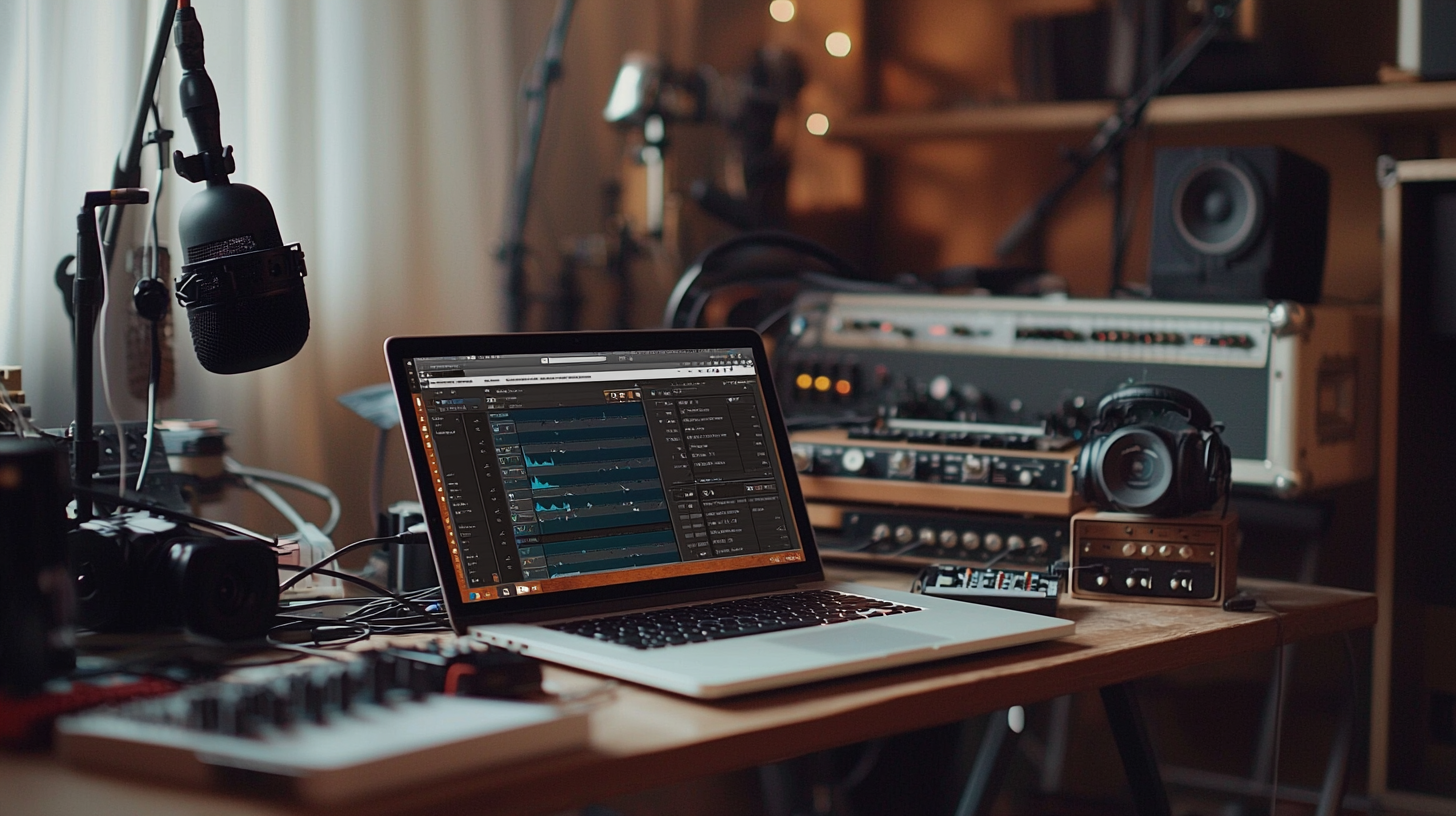Essential Equipment for a Home Studio: A Comprehensive Guide for Musicians
Setting up a home studio is one of the best investments any musician can make, whether you’re a guitarist, bassist, singer, drummer, or rapper. Home recording allows you to practice your craft, produce professional-quality tracks, and collaborate with musicians around the world—all from the comfort of your own space. But knowing what gear you need to get started can be daunting with so many options available.
In this extended guide, we’ll break down the essential equipment you need for a fully functional home recording studio. We’ll also explore how different types of musicians—guitarists, bassists, drummers, vocalists, and more—can tailor their setups to suit their specific recording needs. Additionally, we’ll show how Muibas.com can enhance your home studio experience by offering a platform for collaboration, networking, and sharing your musical ideas.
- Audio Interface: The Core of Your Setup
An audio interface is the central piece of equipment in any home studio. It serves as the bridge between your instruments, microphones, and your computer, converting analog signals into digital audio for your DAW (Digital Audio Workstation). It also ensures that what you record is clean, without unwanted noise or latency.
What to Look For in an Audio Interface:
- Number of Inputs/Outputs: Solo musicians may only need two inputs (for a mic and an instrument), while drummers and bands will need interfaces with multiple inputs to record each element of the kit or the entire band.
- Phantom Power: For condenser microphones, which are essential for vocals and certain instruments, phantom power (+48V) is necessary.
- Latency: Look for low-latency interfaces to ensure your recordings are in sync without noticeable delays.
Recommended Audio Interfaces:
- Focusrite Scarlett 2i2: Ideal for guitarists, bassists, and vocalists who record alone or in small setups. It features two high-quality mic preamps and is known for its excellent sound quality.
- PreSonus AudioBox USB 96: A great budget-friendly interface, offering two mic/instrument inputs, making it perfect for singers and songwriters.
- Focusrite Scarlett 18i20: A more advanced interface with 8 inputs, making it suitable for drummers, bands, or musicians who want to record multiple instruments simultaneously.
- Microphones: Capturing the Right Sound
Your microphone is arguably one of the most critical pieces of gear in your home studio. Whether you’re recording vocals, guitars, drums, or wind instruments, choosing the right microphone is essential for capturing a clear, detailed sound.
Types of Microphones:
- Dynamic Microphones: Ideal for louder sound sources like guitar amps, drums, and live performances. Dynamic mics, such as the Shure SM57 and SM58, are durable and excellent for capturing high-SPL (Sound Pressure Levels) sounds without distortion.
- Condenser Microphones: These are more sensitive than dynamic mics, making them perfect for vocals, acoustic instruments, and detailed sound recordings. Condenser mics like the Audio-Technica AT2020 and Rode NT1-A offer warmth and clarity, especially for vocals.
For Different Musicians:
- Singers and Rappers: A large-diaphragm condenser mic like the Rode NT1-A is ideal for recording vocals, thanks to its sensitivity and wide frequency response.
- Guitarists and Bassists: Guitarists can use dynamic mics like the Shure SM57 to capture the aggressive tones of their amps. Acoustic guitarists, however, benefit from condenser mics like the AKG P170 for its ability to pick up the subtle resonances of their instrument.
- Drummers: Drummers need a full set of microphones, typically including a dynamic mic for the kick drum (like the Shure Beta 52A) and overhead condenser mics to capture the full sound of the kit.
- Headphones and Monitors: Accurate Sound Monitoring
Hearing your recordings accurately is key to producing great music. Whether you’re laying down tracks or mixing, investing in a good pair of studio headphones and studio monitors will make a huge difference.
Headphones:
- Closed-back headphones: These are perfect for recording as they prevent sound from leaking into the microphone. The Audio-Technica ATH-M50x are highly recommended for their excellent sound isolation and clarity.
- Open-back headphones: For mixing, you may prefer open-back headphones like the Sennheiser HD600. They provide a more natural sound but aren’t ideal for recording as they can cause sound leakage.
Studio Monitors:
Studio monitors offer a flat frequency response, meaning they don’t color the sound like regular speakers, giving you an accurate representation of your recordings. For musicians starting out, monitors like the Yamaha HS5 or KRK Rokit 5 are affordable and provide excellent sound clarity for mixing.
- Digital Audio Workstation (DAW): Your Music Production Software
Your DAW is the software you’ll use to record, edit, and mix your music. Different DAWs have different strengths, so it’s important to choose one that suits your workflow and genre.
For Beginners:
- GarageBand: A free DAW for Mac users, GarageBand is a great entry point for beginners. It’s intuitive and comes with pre-installed loops, virtual instruments, and effects.
For Beatmakers and Producers:
- FL Studio: Known for its user-friendly interface and powerful beat-making tools, FL Studio is popular among hip-hop producers and electronic musicians.
- Ableton Live: A favorite among electronic music producers and live performers, Ableton Live offers real-time production features and intuitive tools for beat-making and sound design.
For Advanced Users:
- Logic Pro X: A more advanced version of GarageBand with additional features, Logic Pro X is perfect for those looking for more control over their music production.
- Pro Tools: Considered the industry standard, Pro Tools is widely used in professional studios. It’s a bit more complex but offers deep editing capabilities and powerful mixing tools.
- MIDI Controllers: Composing and Producing Music
If you’re a producer or keyboardist, a MIDI controller is an essential tool in your home studio. MIDI controllers allow you to trigger virtual instruments, play piano or synths, and control your DAW.
- Akai MPK Mini: This budget-friendly controller is perfect for beatmakers and producers who need a compact solution with pads and keys for creating melodies and rhythms.
- Novation Launchkey: Known for its integration with Ableton Live, the Novation Launchkey provides smooth controls for creating and manipulating sounds in real time.
- Instrument-Specific Gear
Different instruments have specific recording needs, and having the right tools will make the recording process much smoother.
For Guitarists and Bassists:
- Amplifiers: If you prefer to record through an amp, invest in a quality amp like the Fender Champion 20 (for guitar) or Ampeg BA-110 (for bass). You can also use amp simulation software like AmpliTube to record directly into your DAW without needing a physical amp.
- DI Box: A DI (Direct Input) box allows you to record your guitar or bass directly into your audio interface, providing a clean signal that can be enhanced with effects later.
For Drummers:
- Drum Mic Kit: A dedicated drum mic kit like the Shure DMK57-52 or Audix DP7 will ensure you capture the full range of your drum kit. If you’re using an electronic drum set, you can record directly via MIDI.
- Essential Cables, Stands, and Accessories
The smaller details can make a big difference when setting up a home studio. Here’s what you’ll need:
- XLR Cables: For connecting microphones to your audio interface, invest in quality XLR cables from brands like Mogami or Hosa for reliable sound transmission.
- Mic Stands: Adjustable stands are essential for recording vocals, guitars, and other instruments. On-Stage MS7701B is a reliable option.
- Pop Filters: A pop filter is necessary for recording vocals to reduce plosive sounds. The Aokeo Professional Pop Filter is a great option for home studio setups.
- Using Muibas.com to Enhance Your Home Studio Experience
While building your home studio allows you to create music independently, collaboration remains an important part of music production. Muibas.com offers a platform that makes it easy to connect with musicians, producers, and bands for collaboration, idea sharing, and networking.
Key Features of Muibas:
- Collaborate with Musicians: Whether you’re a guitarist looking for a singer, or a rapper in need of a producer, Muibas helps you find the right collaborators to enhance your music.
- Test Music Ideas: Upload your tracks and get feedback from the global community. This is a great way to refine your ideas before finalizing them.
- Networking: Build your network of like-minded musicians, producers, and bands. Collaborate on projects, share tips, and grow your career by connecting with others in the industry.


